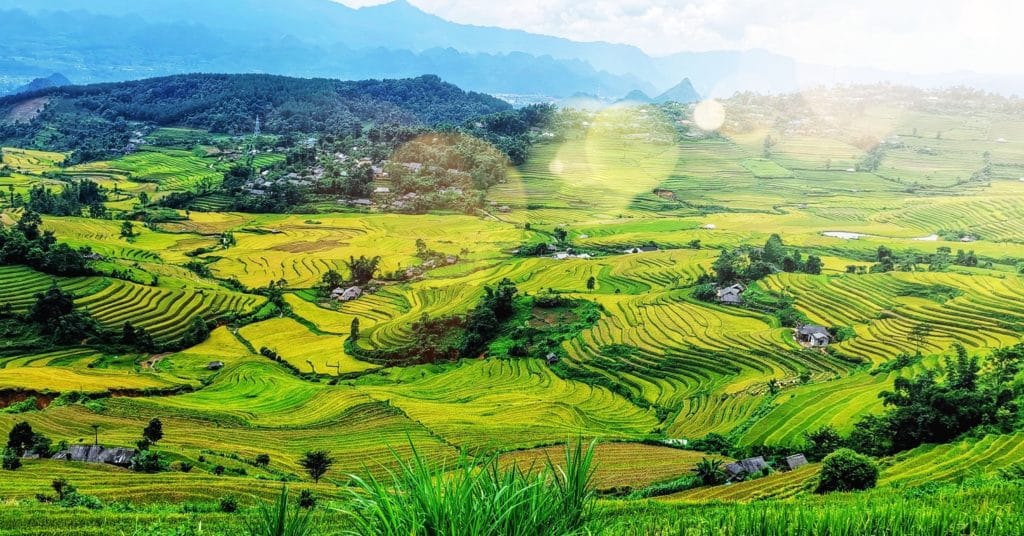
BY CRISTIAN, MENTOR ON MY JOB GLASSES AND CATEGORY MANAGER
Click here to contact him on My Job Glasses!
What is food? Is it just about nourishing ourselves? It may also involve health, pleasure, curiosity, tradition, diet and so much more… To respond to the increasing demand in availability, diversity and quality, natural and social sciences are combined with technology ensuring the processes of producing, storing and delivering food run smoothly.
In this article, I will focus on agriculture as in vegetable production and leave aside animal farming. Are you ready to discover how us, professionals, can contribute to farmers optimising their production?
THE STORY OF THE VITAL BUSINESS OF AGRICULTURE
The threat of food shortage awakens deep emotions in individuals and, therefore, generates panic reactions within society. In March 2020, during the first episode of the pandemic, European governments communicated broadly on the capacity of food producers and retailers to supply groceries such as rice and pasta. These messages did not reassure the population, who feared that COVID-19 was affecting food supplies. This belief was purely irrational, since data did not support the idea of food shortage.
In 2020, at least 155 million people living in other regions (most of them in only 10 countries) did face a food crisis. “Food crisis” means the rapid deterioration of a food shortage situation compared to “chronic hunger” or “food instability”, although they are not necessarily disconnected.
World food prices increased by 28% in 2021, the highest rise in a decade. Higher energy prices alongside inflation meant food prices went over the roof during an already difficult period when economies were fighting the pandemic.
Moving on to current affairs, the Russian intervention in Ukraine will also impact Ukraine’s agricultural exports, the world’s fourth-largest supplier of wheat and corn. Russia will limit the exports of Russian grains, (to keep the food resources for the population), not the Ukrainian exports (which will be limited by the Ukrainian government for the same reason). So, this situation will add pressure on inflation and induce food shortage in many countries.
All in all, if nothing changes, the world will be unable to deliver on its commitment to eradicate hunger by 2030.
BUSINESS OPPORTUNITIES AND NEW CHALLENGES IN AGRICULTURE
It is estimated that in the next 50 years some 70% more food will be needed to feed the world. Only a small part of this future demand will be filled by cultivating new land. The rest shall be obtained from increasing productivity on the existing fields.
There are some “traditional” threats that the farmers have always been exposed to such as pests and diseases affecting the crops, changing climate that does not allow reaching the expected harvest… And also higher expectations from society: a new kind of agriculture that protects the environment and the biodiversity, as well as focusing on sustainability.
Recent European Environment Agency (EEA) studies have shown that many of Europe’s surface and groundwaters are not in good shape, and the state of Europe’s regional seas is alarming. Agricultural activities are an important source of pressures on Europe’s waters, due to nutrient and chemical pollution, water abstraction and physical changes in habitats, including water storage and land drainage.
Climate change is expected to reduce productivity in regions of Southern Europe while improving the conditions for growing crops in Northern Europe. Although Northern regions may experience longer growing seasons and more suitable crop conditions in the future, the number of extreme events negatively affecting agriculture in Europe is supposed to increase, overcoming the positive changes. In the past months, the European Commission has pushed for two legislative initiatives, notably the Carbon farming initiative and the Soil strategy to fight climate change.
AGRICULTURE BUSINESS INNOVATIONS : THERE ARE SOLUTIONS TO GROW BETTER FOOD FOR MORE PEOPLE
There are over 10.2 million agricultural holdings across Europe that are committed to satisfy the demands for safe, tasty, diverse and affordable food. Market leading companies invest to develop and supply pesticides and biopesticides to organic, conservation (low till, no till), agroforestry and conventional agriculture models. There has been tremendous progress in plant biotechnology, identifying traits that will enable crops to thrive in difficult conditions or provide greater benefit in people’s diets. IPM (Integrated Pest Management) is a system of managing pests which is designed to be sustainable. IPM involves using the best combination of cultural, biological and chemical measures for particular circumstances, including plant biotechnology when appropriate. This provides the most cost-effective, environmentally sound and socially acceptable method of managing diseases, insects, weeds and other pests in agriculture.
In addition, there are investments in digital and precision agriculture, which enable maximum yields considering local conditions. Satellite imaging and map analysis of soil variations can predict pest and disease pressure. Alternatively, a drone that can fly to a specific location and collect data of the soil or plant. Predicting the yield of crops allows the calculation of plants’ needs in terms of lime, seed, P&K and nitrogen. As a result, crop protection agents, fertilizer, labor, and soil are used better and more efficiently. Maps can be loaded on the software that controls field equipment (sowing, spraying, harvesting), to optimise the use of technology and the processes. This is called precision agriculture.
Business administration gets support from farm management software, that provides the farmer with a holistic view of all farm activities and inputs through a single platform. The farmer becomes acquainted with tools that put all his fieldwork and paperwork under one single window of control, making it simpler than ever go get an overview of his/her farm.
THE EVOLUTION OF AGRICULTURE
I have been working in the agricultural business for the past 30 years, mostly within the inputs’ industry. With a background in Physics, Biology and Business acumen, I have got jobs in sales, marketing, purchasing, and management. Wondering how did I find myself in this field? There is a need of a holistic approach to complement the farmers’ know-how. A broad range of expertise, from social sciences and economics to IT is desperately needed. There are plenty of opportunities for young people like yourself. If you are looking for an industry that is meaningful and that will continue to create value for the humanity in the coming years, agriculture may be right for you!
Would you like to discuss of the future and professions in agriculture with Cristian? Click here to contact him on My Job Glasses!


